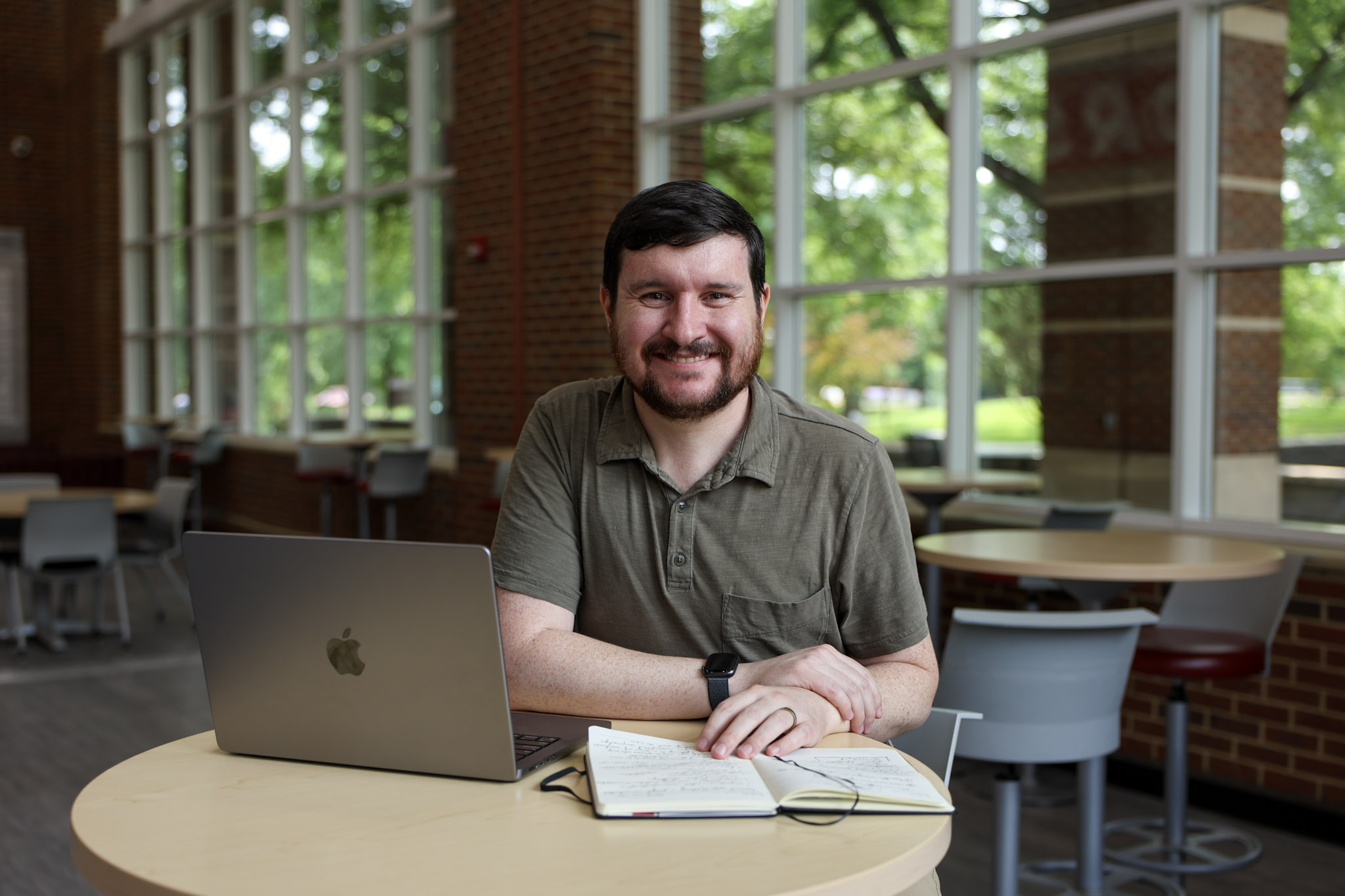Redefining strength: APSU psychologist weighs in on masculinity and mental health
By: Seth Riker June 12, 2025

Dr. Daniel McKelvey, an assistant professor in APSU’s Department of Psychological Science and Counseling. | Photo by Seth Riker
CLARKSVILLE, Tenn. - As topics surrounding men’s mental health continue to gain overdue attention, one Austin Peay State University psychologist is pushing the conversation beyond the spectrum of “either-or.”
Dr. Daniel McKelvey, assistant professor in the Department of Psychological Science and Counseling, has spent years researching masculinity and says it’s not as simple as mainstream conversations may lead us to believe.
“Decades of research tells us there are multiple types of masculinities,” he said. “People often imagine a spectrum where femininity and masculinity are opposites to each other, but, in reality, these things can exist simultaneously in the same person.”
According to McKelvey, having a nuanced appreciation for human behavior can be helpful in understanding how traditional gender roles can shape, and sometimes restrict, mental wellness in men.
“Traditional masculinity often emphasizes self-reliance, toughness, and emotional restraint,” McKelvey said. “But when taken to the extreme, those traits can lead to isolation, substance misuse, and even increased suicide risk.”
McKelvey said mental health struggles often emerge during young adulthood, especially among college-age men. Social pressures, evolving identities, and an ingrained belief that expressing emotion is a weakness can leave many men “suffering in silence.”
One of the most pervasive and dangerous myths, according to McKelvey, is that emotional expression signals vulnerability.
“In reality, strength isn’t about being rigid; it’s about being flexible,” he said. “Just like earthquake-resistant buildings are designed to bend without breaking, mentally strong individuals can recognize and process their emotions without being overwhelmed by them.”
McKelvey notes that masculinity is not inherently negative, and many characteristics associated with it can prove beneficial.
“Traits like leadership, mentorship, and even humor can serve as powerful tools for connection and coping,” he said. “The key is making space for both toughness and tenderness.”
For men wanting to take steps to improve their mental well-being, McKelvey has three pieces of advice:
1. Build Real-World Relationships. "Too many men today are turning to parasocial relationships - following influencers or celebrities online - instead of building genuine friendships," McKelvey said. "We need more real community: neighbors, classmates, and colleagues we actually spend time with."
2. Redefine Emotional Strength. McKelvey urges men to stop equating stoicism with strength. "Expressing sadness, fear, or even joy is not weakness. It's human. And it's healthier to be open with those emotions than to bottle them up or mask them with substances."
3. Model and Encourage Openness. "We can normalize vulnerability by modeling it," McKelvey said. "When men share their struggles, it creates a ripple effect. Others feel safer doing the same."
McKelvey also champions support groups and mental health counseling as important resources. For Clarksville community members, that includes APSU’s low-cost Psychological Science and Counseling Clinic, where McKelvey serves as supervisor.
"There's no pain too small or too big to bring into the therapy room," he said. "Mental health professionals are trained to listen without judgment and help men work through their pain."
As APSU’s College of Behavioral and Health Sciences honors Men’s Health Month, McKelvey hopes more men will challenge outdated gender expectations and begin conversations that embrace emotional flexibility as a sign of true resilience.
"You're a human being," McKelvey said. "You're good enough. You have worth… to yourself and to everyone around you."